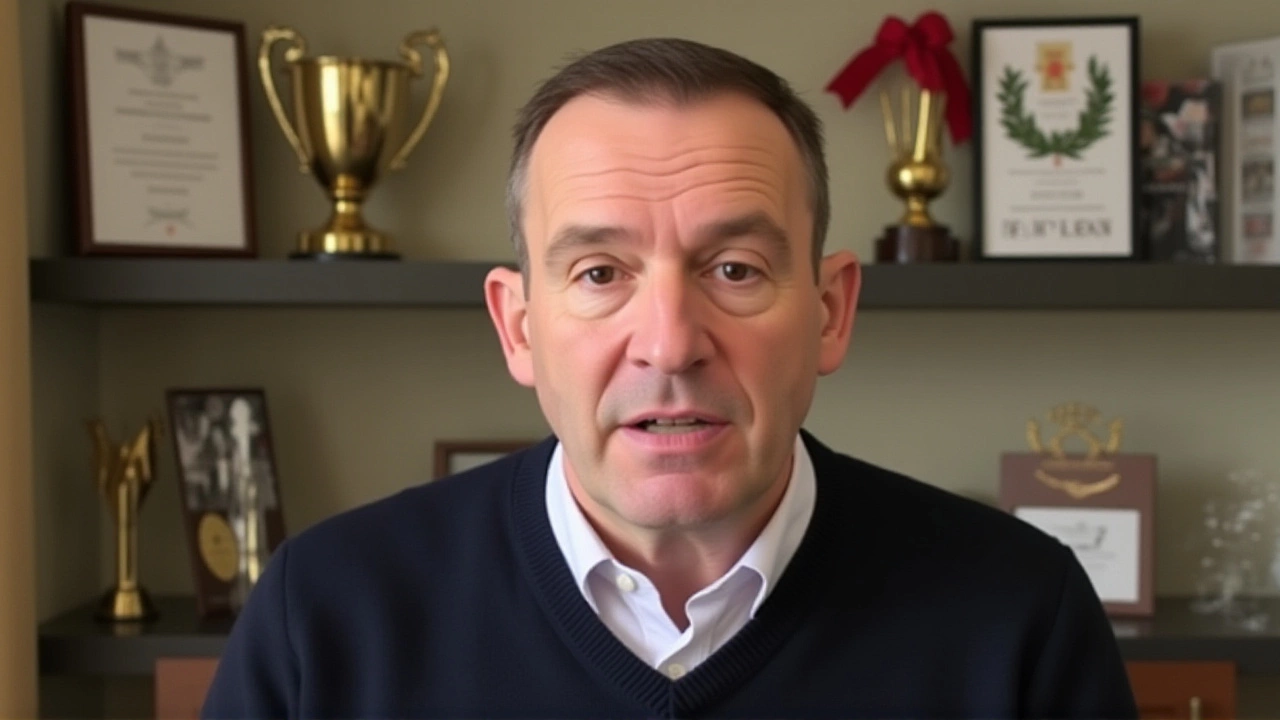When British financial expert Martin Lewis speaks, millions listen — especially when it’s about money. On November 16, 2025, the founder of Money Saving Expert Ltd dropped a sharp, no-nonsense warning: if you’re flying out this Christmas, you’re risking hundreds in avoidable fees unless you follow three non-negotiable rules. And they’re not complicated. They’re simple. But most people still get them wrong.
Here’s the thing: you’ve probably seen those tempting ‘pay in pounds’ options at airport kiosks, hotel front desks, or even on your phone when you’re ordering a coffee in Barcelona. It feels easier. It feels safe. But it’s a trap. And Lewis, who’s been fighting this battle since launching MSE in 2003, says it’s costing UK travelers an average of £3–5% per transaction — money that vanishes into the pockets of currency converters with no transparency.
The Credit Card Golden Rules — No Exceptions
On Money Saving Expert Ltd’s updated ‘Top cards for travelling abroad’ guide, Lewis lays out three rules with the force of a legal notice:
- Repay your balance IN FULL every month — preferably by Direct Debit. No partial payments. No excuses.
- If you can’t pay it all, never miss the minimum. Late fees compound faster than you think.
- Always choose the local currency — never pounds. Even if the screen flashes ‘No extra charges!’
That third rule? It’s the one that saves the most. When you let the merchant convert your purchase to pounds, they’re using a rate that’s often 3–8% worse than Visa or Mastercard’s wholesale rate. And they pocket the difference. Lewis calls it ‘the silent tax on holiday spending.’
Visa vs. Mastercard — And Why It Actually Matters
Here’s something you won’t hear from most banks: Visa’s exchange rates are consistently a tad better than Mastercard’s. The difference? Barely a fraction of a percent per transaction. But multiply that across a €1,200 hotel bill, €400 in meals, and €150 in taxis — and you’re talking £15–£25 saved on one trip. Not life-changing? Maybe. But that’s a free pint in Ibiza or a second gelato in Rome. And in 2025, with the pound still shaky against the euro and rising ATM fees across Spain, France, and Greece, those pennies add up fast.
And while we’re on cards — here’s the real kicker: credit cards offer Section 75 protection. That’s the legal muscle under the Consumer Credit Act 1974 that means if your flight gets canceled, your hotel goes bust, or your expensive gadget arrives broken, you can claim directly from your card provider. That protection kicks in for purchases between £100 and £30,000. Debit cards? They only offer Chargeback — a voluntary, slower, and far less reliable system. One financial analyst told me, ‘Section 75 is your insurance policy. Chargeback is a polite request.’

The Top Two Cards for 2025 — And Who Should Use Them
According to MSE’s November 2025 update, the top travel credit card offers 0.25% cashback on all overseas and UK spending — with no foreign transaction fees and fee-free ATM withdrawals if you repay in full. That’s not huge, but it’s consistent. And remember? That 0.5% double cashback promotion ended September 30, 2025. Don’t get fooled by old YouTube videos still touting it.
The top debit card? The ‘easiest to get’ option. No full credit check. No bank switch. Just open it alongside your current account. It’s perfect for people who don’t qualify for credit cards or just want a backup. It offers fee-free spending and ATM withdrawals abroad — no hidden charges. But here’s the trade-off: no cashback on overseas spending. Instead, it gives you 1% cashback on UK groceries, fuel, and public transport — capped at £15 per month. Plus, it links to a 4.5% easy-access savings account. That’s rare. That’s valuable. And for someone saving up for next year’s trip? It’s smarter than most premium travel cards.
One caveat: that savings account? It’s held in a ‘money market fund’ — not a traditional bank. So it’s not covered by the Financial Services Compensation Scheme (FSCS). ‘It’s low risk,’ says Be Clever With Your Cash in their 2025 YouTube breakdown. ‘But if you’re stashing £10,000 in there, you’re taking a bet.’
Why This Matters Right Now
Over 15.2 million UK residents are expected to travel abroad this holiday season. The Financial Conduct Authority just reported 237,000 consumers paid over £50 in foreign transaction fees in Q3 2025 alone. That’s not a typo. That’s nearly a quarter of a million people paying hundreds of pounds in unnecessary charges — often because they didn’t know better.
And it’s not just about the fees. It’s about control. When you pay in local currency, you see exactly what you’re spending. You’re not being sold a lie by a merchant who’s hiding a bad rate behind a ‘no extra charge’ button. You’re making an informed choice.
There’s also a £10 bonus available if you spend £150 in a foreign currency within six months of opening certain cards — but only if you activate it through MSE’s partner links. Most people miss it because they apply directly. That’s like leaving money on the table.

What’s Next?
MSE says it will update its travel card recommendations quarterly through 2026. The next review drops in February, just before Valentine’s Day travel peaks. If you’re booking flights before December 15, 2025, you’ve got less than a month to act. And if you’re planning a trip to Europe — especially Spain, Italy, or Greece — don’t wait. ATM fees there have jumped 18% since Brexit, and some banks now charge £2.50 per withdrawal on top of foreign exchange markups.
So here’s the bottom line: if you’re taking a credit card abroad, pay it off in full. If you’re using a debit card, know what you’re getting — and what you’re not. And for heaven’s sake — always pick the local currency.
Frequently Asked Questions
Why is paying in local currency cheaper than paying in pounds?
When you pay in pounds abroad, the merchant or ATM operator uses their own exchange rate — often 3–8% worse than Visa or Mastercard’s wholesale rate. Your bank doesn’t get a cut; the merchant does. Choosing the local currency forces the transaction through your card network’s fairer, real-time rate, saving you 2–5% per transaction.
Is Section 75 protection really that important?
Yes. If your holiday is ruined — say, your flight is canceled, your resort goes bankrupt, or your expensive camera breaks — Section 75 makes your credit card company jointly liable. You can claim back the full amount. Chargeback on debit cards is slower, less reliable, and often rejected. For purchases over £100, it’s the difference between getting your money back and eating the loss.
Can I use a debit card safely abroad?
Yes — if you pick the right one. The top MSE-recommended debit card offers fee-free spending and withdrawals abroad with no credit check. But avoid loading it with large sums, since the savings account linked to it isn’t FSCS-protected. Use it like a prepaid card: load only what you need for the trip.
What’s the best way to avoid ATM fees abroad?
Use a credit card that offers fee-free withdrawals — but only if you repay in full each month. Otherwise, interest will wipe out any savings. Alternatively, withdraw larger amounts less frequently to reduce per-transaction fees. Avoid ATMs in tourist zones — they often have higher surcharges than those in local neighborhoods.
Do I need to switch banks to get these cards?
No. The top recommended debit card can be opened alongside your existing account with just an ID check. Credit cards require a full credit check, but you can use MSE’s eligibility calculator first to see your odds without hurting your credit score.
When will MSE update these recommendations again?
MSE updates its travel card rankings quarterly. The next review is due in February 2026, ahead of Valentine’s Day travel. Rates and fees change often — especially post-Brexit — so checking before each trip is essential. Don’t rely on advice from last year.




